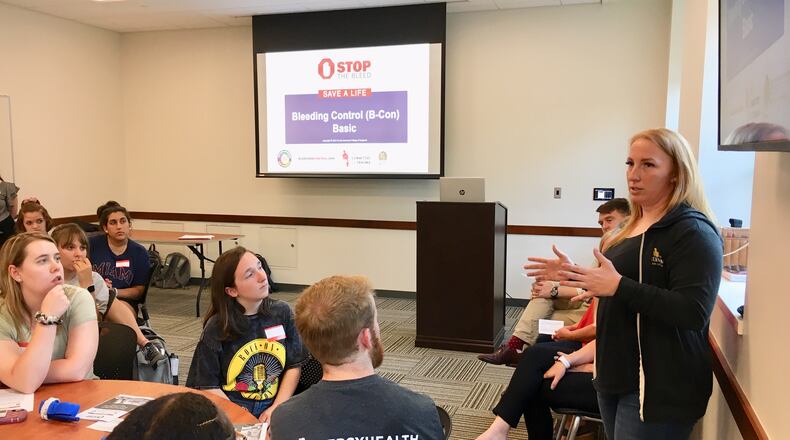“Someone on the 32nd floor changed all our lives forever,” Matthews told the students in a voice shaking at times with emotion.
“People just dropped to the ground. Some voluntarily. Some not,” she said.
The class listened intently and then an area trauma surgeon and volunteers from local Fire and EMS teams led the students through an instructional class that included some graphic, open wound photos that had one student upset enough to leave.
Miami senior Grace Chaney organized the first-time class as part as an executive board member of the university’s Anatomy and Physiology Club.
It’s needed, she told the Journal-News.
“Victims of massive and uncontrolled bleeding can die within five to 10 minutes. Many times EMS cannot arrive within that time frame,” said Chaney.
About the Author
